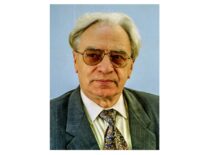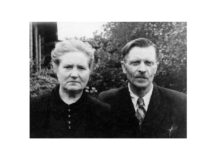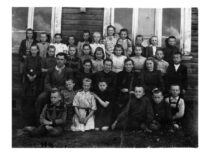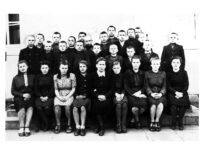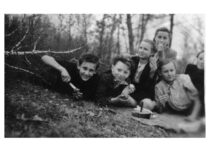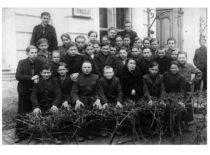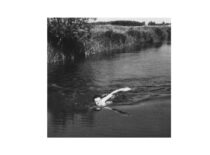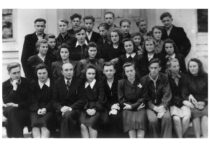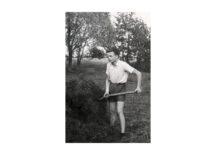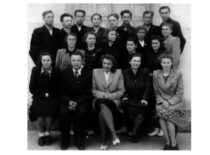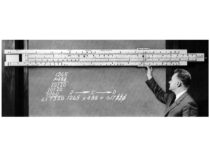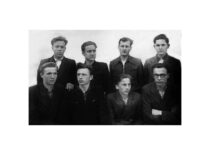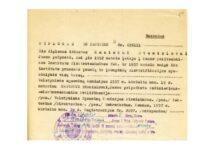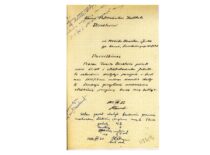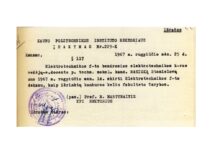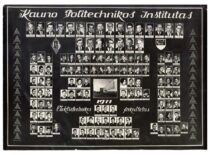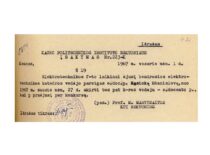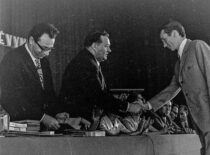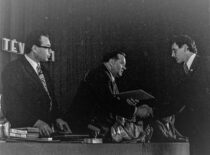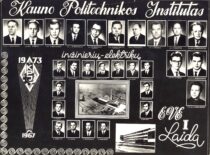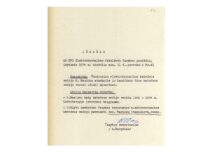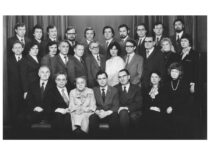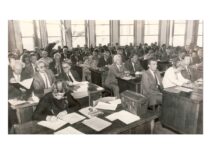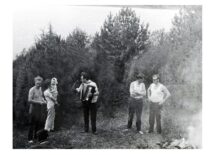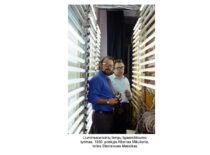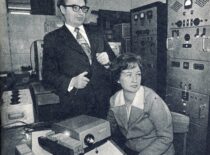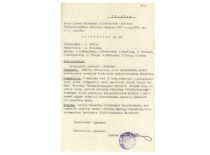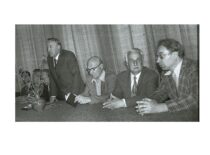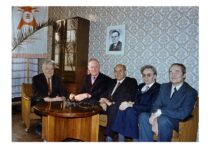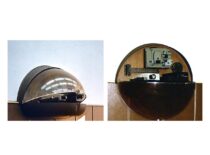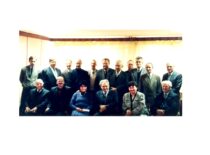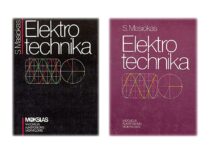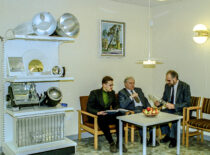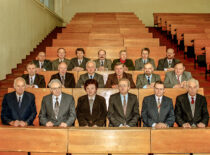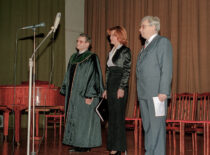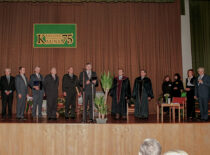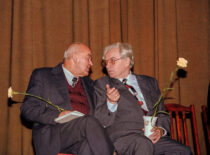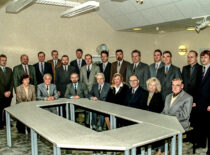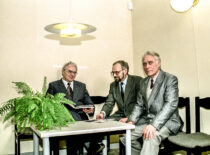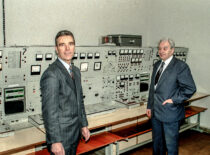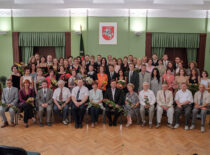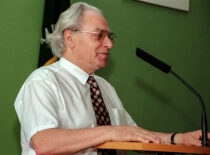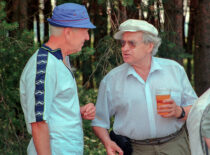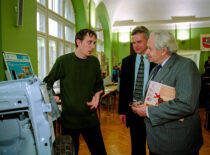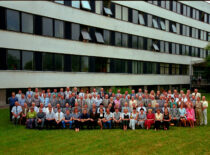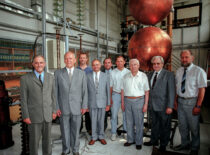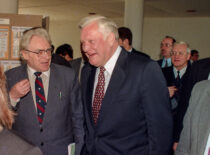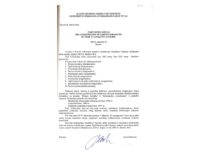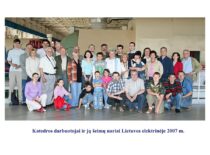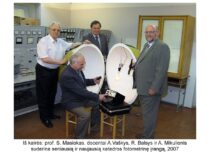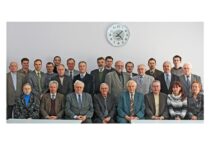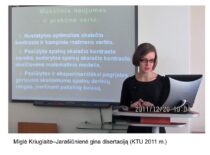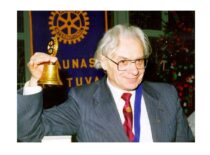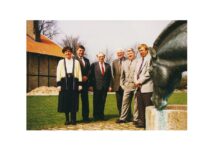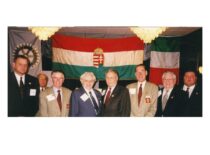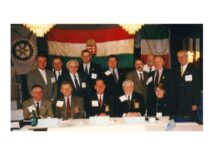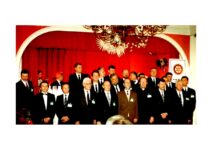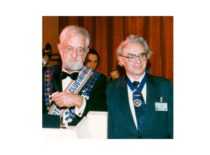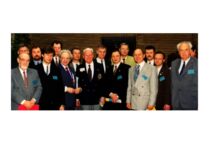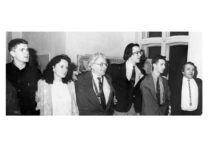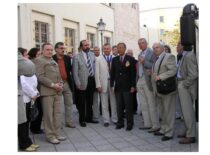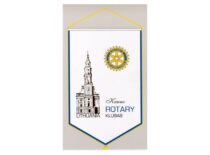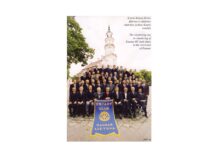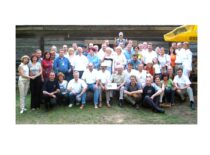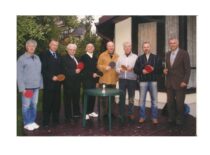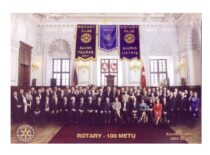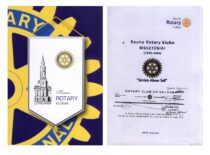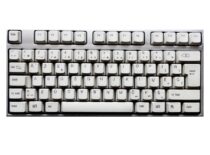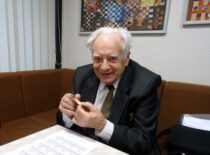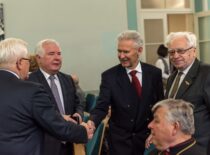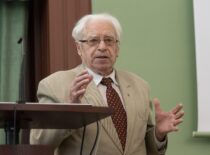Childhood and Studies After the War
Prof. Stanislovas Masiokas was born on 6 February 1933 in Janioniai village, Ramygala Volost, in the family of average farmers. He was the youngest, sixth child. His father was self-taught but through self-education, he reached the level of a veterinary practitioner and, together with his eldest son, established a model farm. Prof. S. Masiokas said that the family had always expressed respect for science and education, and everyone wanted the youngest child to be able to pursue higher education. In 1943, after graduating from Jotainiai Primary School, Stanislovas was admitted to the first grade of Ramygala Gymnasium. From 1945 to 1948, he attended Panevėžys 1st Gymnasium for Boys but due to difficult financial conditions, he had to skip one year of school to help his family with farming.
In 1949, Stanislovas returned to Ramygala Secondary School, where he attended 9th grade. At school, he established physics and mathematics clubs with his classmates. While at school, he completed a tractor driver’s course at Ramygala Machine-Tractor Station and spent his summers working in the fields with the most powerful machinery of the time. Together with mathematics teacher Vladas Rinkevičius and other classmates, he designed the school stadium and was actively involved in its construction. School mathematics problem books were no longer interesting for a curious pupil, so he received by post the problem books for the university entrance examinations. Stanislovas enjoyed school dance parties, where he played the accordion, he was a member of the folk dance group, the school choir, and was involved in sports, specifically, wrestling and shooting.
In 1952, Stanislovas Masiokas graduated from school and was admitted to then prestigious Faculty of Electrical Engineering of Kaunas Polytechnic Institute (KPI) to study the specialisation of electrical equipment for industrial enterprises (52/9 academic group). During his studies, Stanislovas decided to get involved only in scientific activities and already in the second year of studies, he became the chairman of the faculty’s Student Scientific Society (SMD). In 1954, at the initiative of KPI, the 1st Scientific Conference of Students of the Baltic and Byelorussian SSR was organised, where Stanislovas was tasked with the organisation of the sections of Electrical Engineering and Physical Sciences. In the 4th year of studies, Stanislovas became interested in then modern fluorescent lighting and chose this topic for his thesis. In 1957, S. Masiokas graduated from the institute with honours, obtaining the diploma in electromechanical engineering.



